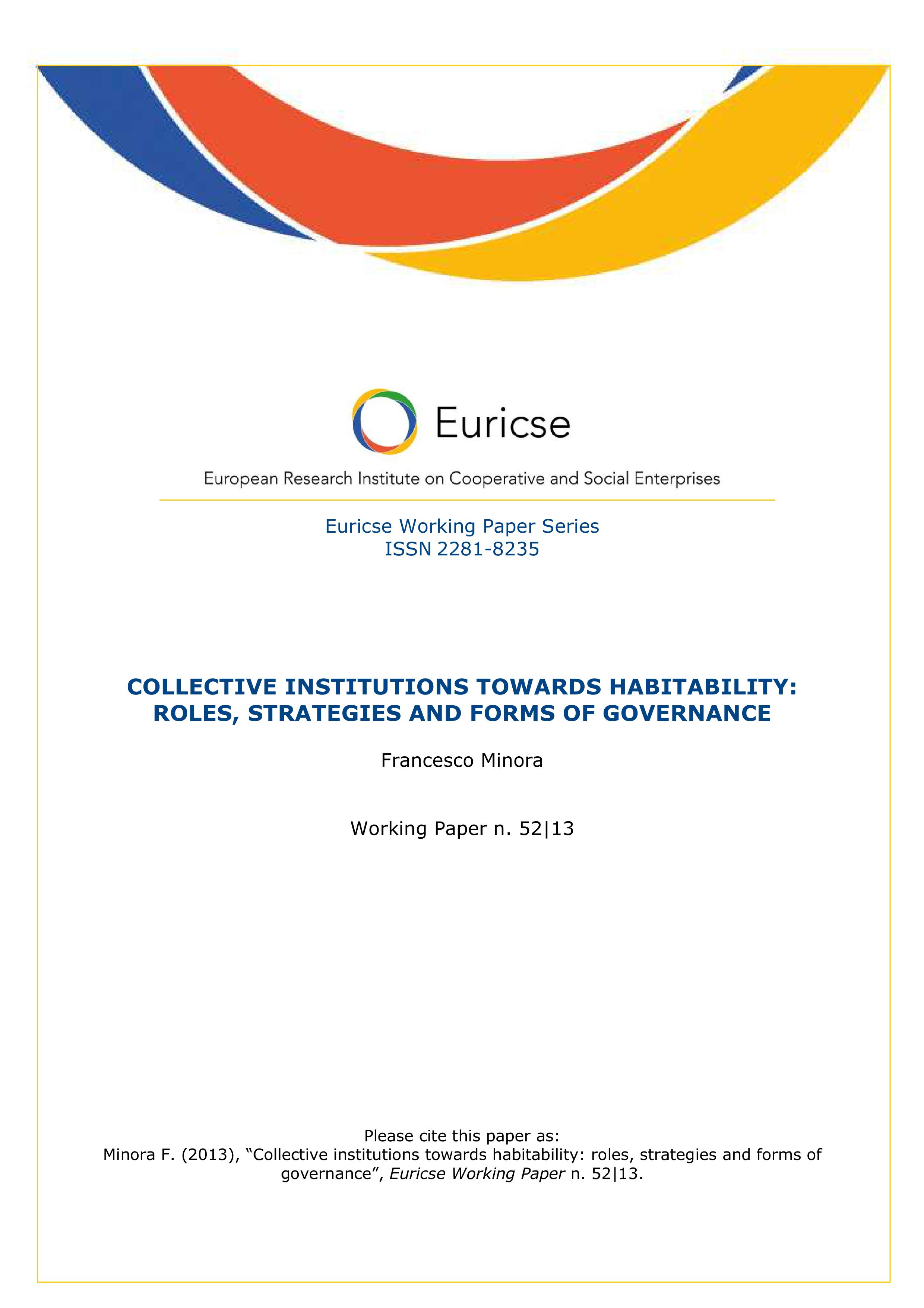WP 52 | 13 Collective institutions towards habitability: roles, strategies and forms of governance
The goal of this paper is to apply the theory of commons to residential contexts and verify if and how collective institutions can be used to produce habitability, i.e. a set of particular socio-environmental conditions conducive to inhabiting a particular area. While most literature on the study of the commons has a specific focus on the management of natural resources, this paper argues that collective institutions can work also in urban contexts.
The theme of habitability will be discussed from two different perspectives: the first part of the paper will present the historical evolution of two very old collective institutions in north-central Italy responsible for managing common lands. These rural institutions have faced major socio-economic changes and have developed adaptive strategies to survive until today. The second part of the paper will discuss new forms of collective institutions (such as co-ops, trusts, charities, etc.) that use very similar institutional arrangements compared to the previous examples, but for the purpose of governing housing estates.

